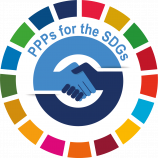What is PIERS?

Developed by the UNECE with the support of more than 100 experts from public and private sectors, academia and civil society organizations, the PIERS methodology is a unique platform to scoring infrastructure projects against the SDGs.
Put simply, it ensures projects create “value for people” and “value for the planet,” with a focus on the world’s most vulnerable. By using the PIERS methodology, project managers can assess their PPP projects early on and improve them throughout their design and implementation phase.
Integrating considerations of resilience, sustainability and circularity, the PIERS methodology brings together five PPPs for the SDGs outcomes:
- Access and equity;
- Economic effectiveness;
- Environmental sustainability and resilience;
- Replicability; and
- Stakeholder engagement.
Main features
The PIERS methodology provides a platform for evaluating and scoring PPPs and infrastructure projects for their alignment with the SDGs using a specially designed set of 22 criteria and 95 indicators.
The PIERS methodology has several defining characteristics:
- Flexible and adaptable to all types of PPPs and infrastructure projects, across all sectors and country contexts.
- Complementary to other existing PPP/infrastructure standards, frameworks, and assessment protocols.
- Provides potential investors with an additional layer of assurance that projects using the methodology are taking concrete steps to be more sustainable.
- Freely available as a self-assessment tool, with an expert-led ‘assisted self-assessment’ process as part of the UNECE PIERS Programme (see below for details).
- Encourages users to improve their PPPs and infrastructure projects when the opportunity to do so is most cost-effective.
- Designed to be educational, informative, helpful, lead to better projects, and used to build capacity around sustainable PPPs and infrastructure.
Using PIERS
PIERS Self-Assessment Tool
Excel version: English - Russian
User’s Guide: English - Russian
PIERS Programme
The UNECE PIERS Programme is part of the UNECE demand-driven capacity building and policy advisory services to member States, to provide assisted self-assessments using the PIERS methodology.
Key principles
- Voluntary: Participation in the PIERS Programme is voluntary.
- Credibility: The credibility of the PIERS methodology and the PIERS Programme processes, structure, and outcomes is enhanced in two crucial ways: (a) The involvement of a Technical Panel composed of experts who address and resolve complex technical and project-specific issues, and (b) PIERS Project Evaluators and Peer Reviewers with deep knowledge and understanding of the PIERS methodology who assess and review projects for their alignment with the SDGs.
- Balancing Consistency and Completeness with Flexibility: Participating projects are assessed with the assistance of expert, specially trained Project Evaluators and Peer Reviewers in a consistent manner, using the PIERS methodology.
- Robustness: The PIERS methodology, having been developed by an international group of subject matter experts, is a robust tool, rooted in international best practices, to evaluate and measure projects for their alignment with and contributions to the SDGs.
- Adds Value to Governments: The PIERS Programme helps governments improve their projects’ value for people, and value for the planet, while also examining indicators of economic effectiveness and fiscal sustainability.
- Provides Assurance to Investors: Investors are provided with a level of assurance that projects participating in the PIERS Programme are aligned with the SDGs and improve outcomes for people and the planet. The PIERS methodology is designed to be complementary to traditional business case and bankability assessments.
Benefits
- Enhanced rigour and credibility.
- Assistance from PPP and infrastructure experts.
- Significant time savings compared to using the PIERS methodology without UNECE.
- Tangible deliverables, including a project evaluation report with project strengths and areas of opportunity.
- Differentiation and potential to attract investors.
Roster of PIERS Project Evaluators and Peer Reviewers
The UNECE secretariat maintains a roster of PIERS Project Evaluators and Peer Reviewers, who are experts selected and specially trained by the UNECE who assess and review participating projects in the PIERS Programme.
The Roster of PIERS Project Evaluators and Peer Reviewers is available here.
PIERS e-training module
- Online asynchronous course and Instructor-led course on PIERS (under development)